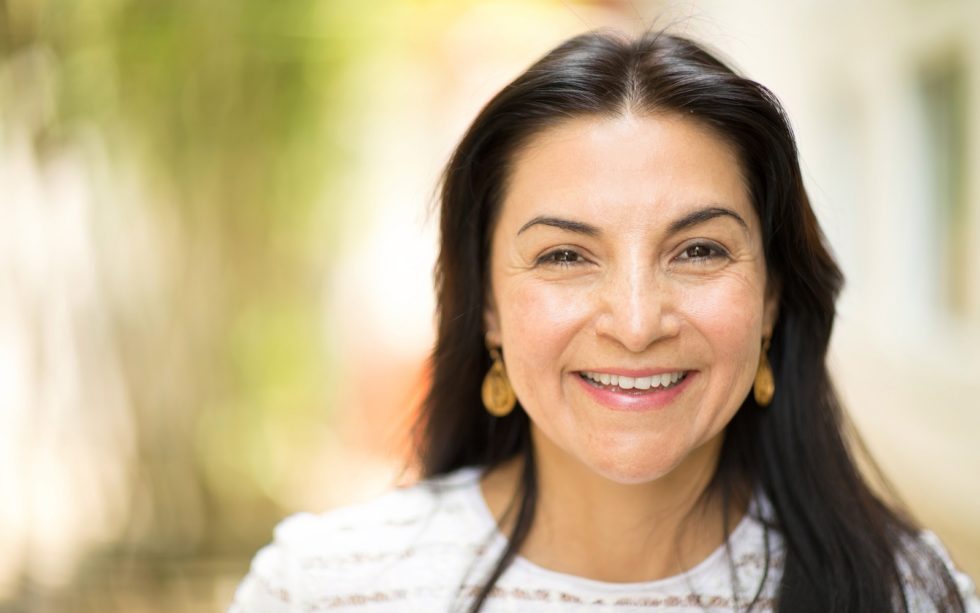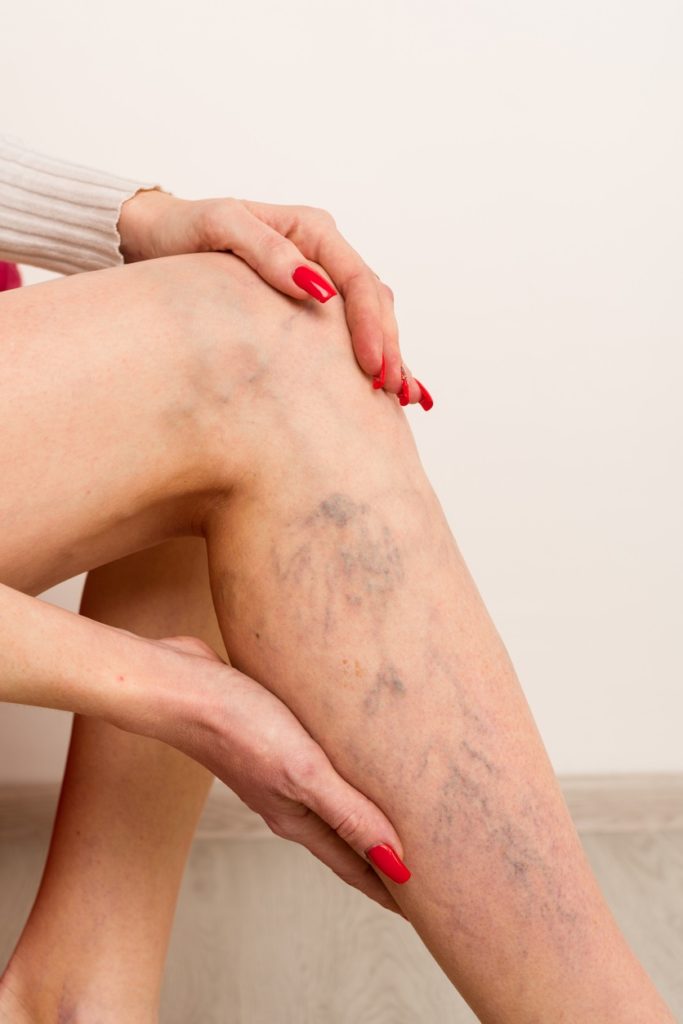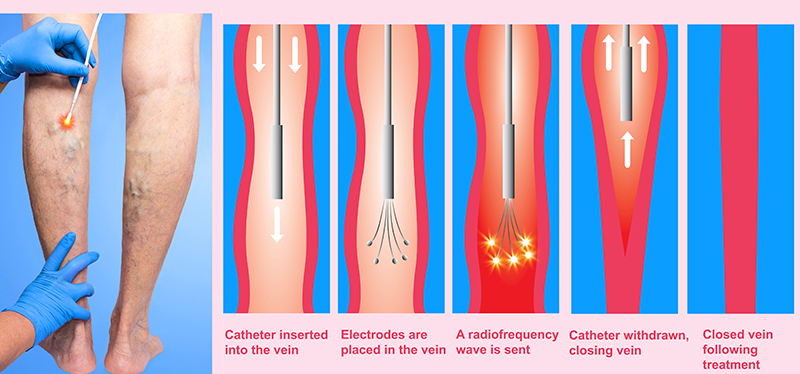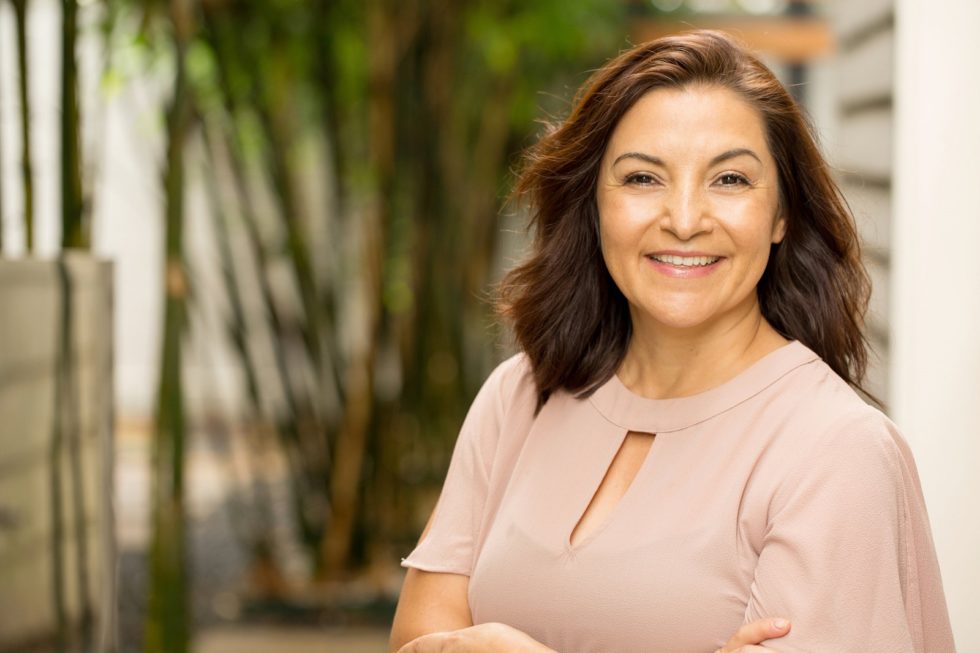How Maria Found Relief from the Best Varicose Vein Doctors
Author: StrideCare Internal Team

Maria’s Story: “I Always Wore Pants to Cover My Legs”
Meet Maria*, a 58-year-old woman who was suffering from leg heaviness, tiredness, and bulging veins for years. She always wore pants to cover up the ugly appearance of her legs. Maria’s leg conditions eventually got so bad that she had ongoing pain. She searched online and asked friends for the best varicose vein doctors in North Texas. She finally found relief by making an appointment for varicose vein treatment at Stridecare.
The best varicose vein doctors at Stridecare diagnosed Maria’s concerns as chronic venous insufficiency and bilateral greater saphenous vein reflux. Chronic venous insufficiency (CVI) is a condition that develops over a long period of time from malfunctioning valves in leg veins. CVI is highly underdiagnosed and affects approximately 40% of the U.S. population. This condition develops over months or years from malfunctioning valves in the veins of the legs. Normally, working valves prevent backflow of blood down legs and keep blood moving back towards the heart. However, broken valves in a patient with CVI do not hold a seal. Therefore, blood pressure builds up in the lower legs leading to pooling of the blood, called venous stasis. This results in swelling and skin changes.
What Are Chronic Venous Insufficiency Symptoms?

Common signs and symptoms of CVI include:
- spider veins
- leg cramps and aching pain
- restless legs
- varicose veins
- leg heaviness and tiredness
- swelling
- skin discoloration
- slow-healing ulcers or sores
Other risk factors include family history of venous disease, occupation that requires prolonged period of standing or sitting. Women are at higher risk especially after pregnancy.
Preferred Treatment for Varicose Veins and CVI
The best varicose vein doctors at StrideCare were able to treat Maria’s condition and provide relief from her discomfort. First, Maria wore compression stockings for a period of time. She then received the varicose vein treatment radiofrequency ablation (RFA) of greater saphenous veins. Radiofrequency ablation is a minimally invasive treatment for varicose veins and chronic venous insufficiency (CVI) in which an experienced vascular doctor inserts an endovenous radiofrequency ablation (RFA) catheter to collapse and close enlarged leg veins. After the vein is sealed shut, blood then naturally re-routes to healthy veins.
How Is Radiofrequency Ablation Performed?
A catheter is inserted into the vein through a tiny incision below the knee while under local anesthetic. In addition, lidocaine (tumescent) anesthesia is used to surround the vein to help collapse the vein around the catheter as well as provide anesthetic to reduce any discomfort. Most patients report no discomfort due to the tumescent insulating the vein during the radiofrequency treatment. Guided by ultrasound imaging, an expert vascular physician treats the abnormal segment of vein with radiofrequency energy, causing the vessel to shrink around the catheter. The doctor withdraws the catheter, treating each segment until the entire length of the vein has been sealed.

Unlike painful vein stripping surgery or laser ablation, the catheter delivers uniform, consistent heat to each segment and temperatures do not exceed 120°C. Radiofrequency ablation uses controlled and consistent heat to close the diseased vein. As a result, this procedure causes less bruising and allows for rapid patient relief and recovery.
What Are the Benefits of Radiofrequency Ablation?
RFA eliminates the need for groin surgery and general anesthesia. The procedure also results in little to no scarring and is performed using local anesthesia in the StrideCare office. In addition, the procedure’s benefits include:
- Minimally invasive
- Less pain, bruising and complications
- Return to normal activity and work significantly faster
- Up to four times faster improvement in patient quality of life
RFA has been shown in a prospective, international multi-center study to be 93% effective. The procedure is performed as a medical necessity as diagnosed by one of the best varicose vein doctors at StrideCare.
Finally, Relief from Leg Discomfort
Maria was elated with the results. “My legs are a lot clearer! Now I have more confidence and less swelling and pain!” She recommends StrideCare to everyone she knows, including her own mother. Maria’s testimonial is just one of many successful treatments by our best varicose vein doctors at StrideCare.

Meet Our Best Varicose Vein Doctors at StrideCare
The vascular physicians at StrideCare are leading North Texas vein doctors for treating varicose veins and leg wounds that won’t heal due to vein problems. They are board certified diagnostic radiologists with additional fellowship training in vascular and interventional radiology. StrideCare has long been a leader in performing leading-edge procedures to treat venous disease such as chronic venous insufficiency, varicose veins, spider veins, restless leg syndrome, pelvic congestion syndrome, iliac vein stenosis and more—all the while providing compassionate patient care.
If your legs need treatment, or you have questions about varicose veins, the experts at StrideCare will recommend an individualized plan to help you get the best results.
Prior to starting any new treatment or questions regarding a medical condition, always seek the advice of your doctor or other qualified health provider. This information is not a substitute for professional medical advice.
StrideCare serves the South Texas area including Houston, San Antonio, Austin, Round Rock, Bastrop, Brushy Creek, Cedar Park, Converse, Georgetown, Hutto, Kyle, Leander, Marble Falls, New Braunfels, Pasadena, Pearland, Pflugerville, San Marcos, Schertz, Houston, Sugar Land, Katy, Webster, Bay City, Clear Lake, Lake Jackson, The Woodlands, Universal City, Spring, Kingwood, Stafford, Conroe, Texas City, Cypress, League City, Bellaire, and more.
*Patient stories are true. Names and/or photos may be changed to protect patient confidentiality.


